'Caring at Its Essence': HIV Nurses Recall Pivotal Moments With Patients
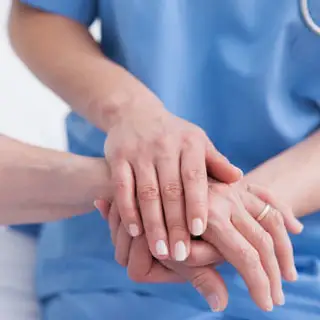
One of the central tenets of nursing is compassion: a quest to heal patients holistically and with empathy rather than focusing narrowly on the clinical treatment or prevention of a specific condition. For that reason, HIV nurses are crucial members of the care team for an HIV-positive person.
At the 2017 Association of Nurses in AIDS Care (ANAC) conference, we asked HIV nurses to share a moment in which their unique perspective made a big difference in the care of a particular patient. Many nurses we spoke with noted that, because nurses spend long hours with patients, they tend to have a more nuanced understanding of the downstream consequences that any medical decision will have on the social and cultural context of a patient's life.
Transcripts have been edited for clarity and brevity. All photos are by Sony Salzman.
Image credit: Wavebreak Media via Thinkstock.
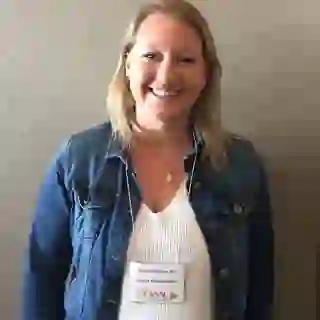
Theresa Minukas RN, B.S.N.
Minukas is a registered nurse at Massachusetts General Hospital in Boston, Massachusetts.
There's this HIV/hep[atitis] C-coinfected patient who also has a raging crystal meth addiction. He would cycle in through the emergency room pretty much every other day [talking about] his skin crawling, which is a symptom of methamphetamine use. [He] was not taking his HIV meds, was about to be kicked out of his housing, and his whole life was about to fall apart.
When he came in to talk about these things, I sat with him and I listened to him talk about the sensation of his skin, and for the first time in probably three or four years somebody actually listened to him, and didn't make him feel crazy about it -- validated the fact that, yes, this is real, but also, what are we going to do about it?
After a lot of work, and a lot of sitting there listening to him talk about his skin, he is now taking his HIV meds; we've cured his hepatitis C; he's in mental health counseling. He's engaged in his sobriety, and I don't really know where he would be without that.
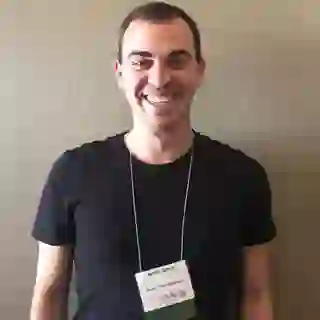
Justin Alves, RN, ACRN, CARN
Alves is a registered nurse at Massachusetts General Hospital in Boston, Massachusetts.
There was an inpatient who was an undocumented immigrant from Guatemala, who was just diagnosed with AIDS and toxoplasmosis and [had] very low health literacy -- didn't speak English, only spoke Spanish. I walked in the room, and he didn't know what was wrong; he had just come out of the ICU [intensive care unit] and he really had no understanding of what was wrong with him.
The team's original discharge plan was to send him home to Guatemala. I remember being in a team meeting and saying, well, then, you can just sign his death certificate. You don't understand that this will kill him; sending him home is a death sentence.
He now, to this day, is here in the United States. He's on meds, he's immigrated legally, and he's planning a family and getting ready to have his own child.
That's one of those moments where I'm sure, had I not been in the room to say, "This is not allowed to happen," it would have. And I think that's the difference about a nurse being in the room: The nurse sees this whole picture, and says, "He doesn't even know what HIV is. We cannot send him home."
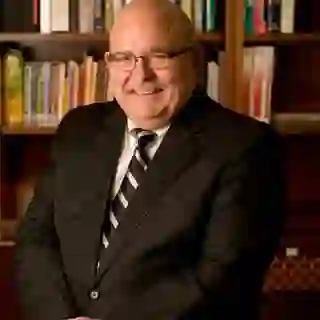
William L. Holzemer, RN, Ph.D., FAAN
Holzemer is the dean of Rutgers School of Nursing in New Brunswick, New Jersey
I was on the very first government panel that wrote HIV practice guidelines [for early-stage infection, entitled Evaluation and Management of Early HIV Infection]. There was another nurse there. They wanted to name the document, "The Management of Asymptomatic HIV." Early stage.
I made the case: Once you're positive, you have symptoms; it's not asymptomatic any more. You are depressed; you have to deal with disclosure; you have sexual issues. So, I got them to change the name of this guideline book to "Management of Early HIV."
Now, it sounds small, but it was a very medical definition -- that you're OK if you're asymptomatic and you don't have diarrhea. But the fact that you can't sleep at night and talk to your parents is huge, and we know even more now how huge that is. So, this changed the publication of something that sold 10 million copies. This was huge.
I know it's not a direct patient story, but ... symptom management is often how many people like to define what nurses do. It was very popular [at the time] to say they're asymptomatic. ... So that was, to me, a watershed moment.
Image credit: Association of Nurses in AIDS Care.
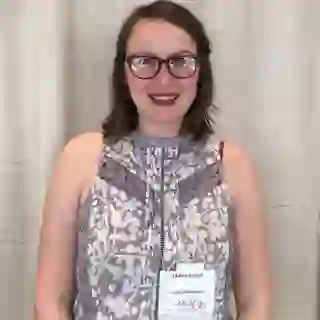
Claire Siegel, RN
Siegel is a PrEP [pre-exposure prophylaxis] coordinator at the Country Doctor Community Clinic in Seattle, Washington.
I do remember one older woman I saw who was schizophrenic. She was very lovely. I worked with her to treat her ulcers. I touched her and hugged her a lot, which I felt was therapeutic for her.
Her doctor came in, whom she had known for years. I was able to help her with some of the medical translation that needs to happen when patients still have questions after the doctor talks to them.
In general, opioid-addicted patients -- those who are using heroin -- they really need that handholding, that human connection. They need to be touched. For many, it's been a long time since they've been touched.
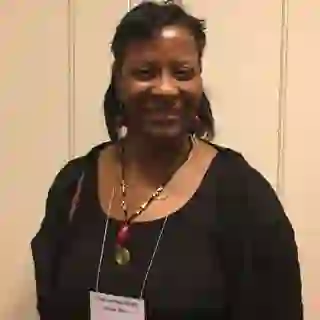
Zyra Gordon-Smith, D.N.P., APN, FNP-BC, AACRN, AAHIVS
Gordon-Smith is a family nurse practitioner at Howard Brown Health in Chicago, Illinois.
Not too long after I finished undergrad [college], I was working at the hospital. There was an older woman; she was special to me because she reminded me so much of my grandma. The doctors had just finished in the room; they had [completed their rounds]; they told her she wasn't going to walk anymore.
I was there in the room, and she was silently crying, and I was there talking with her. I asked her: "Do you believe this?" And she said, "I don't want to believe it." I remember praying for her, and I said, "If you want to do this, you can walk." And before she got discharged, she was walking.
Her granddaughter thanked me so much. Her granddaughter [later] went into nursing because she said that she was so touched and moved by what I did in talking with her grandmother.
A lot of times, our role as nurses is more than caregivers: We touch the body, and we touch the soul and the mind of the clients that we work with, in ways that we may not even realize. ... This isn't a glory-filled position that we go into. But people go into nursing because of how they were touched or how their family was touched, and they feel a willingness to give back because of the gratitude that they had because of what they experienced themselves or through what was done for a family member. There's no real monetary value [you can put on] that.
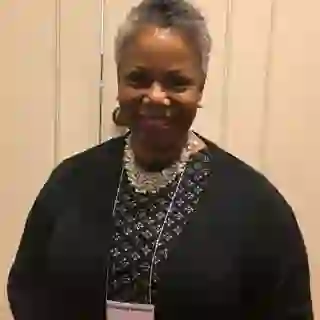
Bethsheba Johnson M.S.N., GNP-BC, AAHIVS
Johnson is an associate director and HIV prevention medical scientist at Gilead Sciences, Inc., in Houston.
[My story] was not at work; it was my grandmother dying. She was in the hospital, she'd been DNR [do not resuscitate], but they kept ignoring her wishes. They amputated her leg; they put a pacemaker in; they kept resuscitating her.
When I went to visit her, ... she held my hand and she said, "I'm tired." My family and my mother, her sisters and brothers, did not listen. She said, "I'm tired, they're trying to keep me alive, and I don't want this. I want to go home. I want to die at home."
I had a family meeting -- and this was not as the granddaughter, but as the nurse practitioner, having that conversation about someone's rights. They listened to me, and that was amazing. They finally did her DNR [order]; they discharged her. She lived another six to eight months and died at home where she wanted to be.
That was one of the most difficult things to do: talk to the family and talk about the rights of their mother. She just didn't want all that heroic stuff. So, that was a moment, to me, where I think I made a huge difference in quality of life for my grandmother.
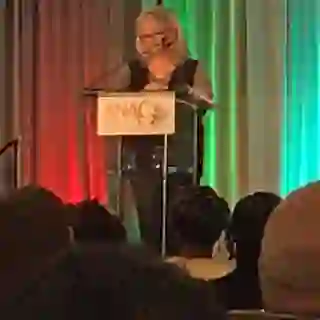
Ella P. Curry, Ph.D., M.T.S., RN
Curry is a nurse historian.
I think the most important thing ever that I did for my patients -- there were so many for whom coming into our office was the only place in the world where they could be wholly who they were.
I would tell my students: When that happens, you're on sacred ground. Because when someone knows they can come sit in your office, or come into the exam room, and they don't have to have all that work of negative entropy, I call it -- of asking, "Who's here, who do I have to be cautious with?" -- learn to watch the body relax, the breathing to ease a bit, and be mindful of how sacred that is that you can be there to provide that space.
That is a level of caring that has nothing to do with prescriptions or treatments or side effects. But that's the important thing we can do. And we did that a lot. In fact, my patients came to call my office the "comfort space." I had it decorated -- the walls with quilts and low light -- and it was really intentional. The patients would love to come there to sit in my rocking chair.
It's therapeutic. It's caring at its essence. I put in many 16- and 18-hour days, but I would walk down the hill at night; I could look to the stars and say: Thank you for that privilege.